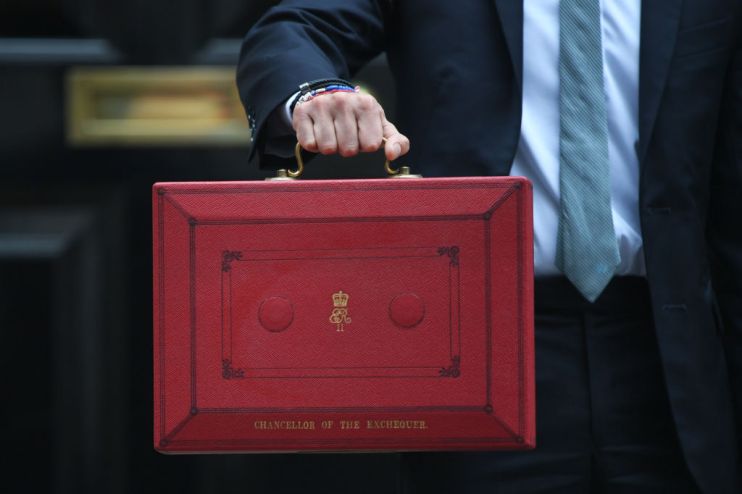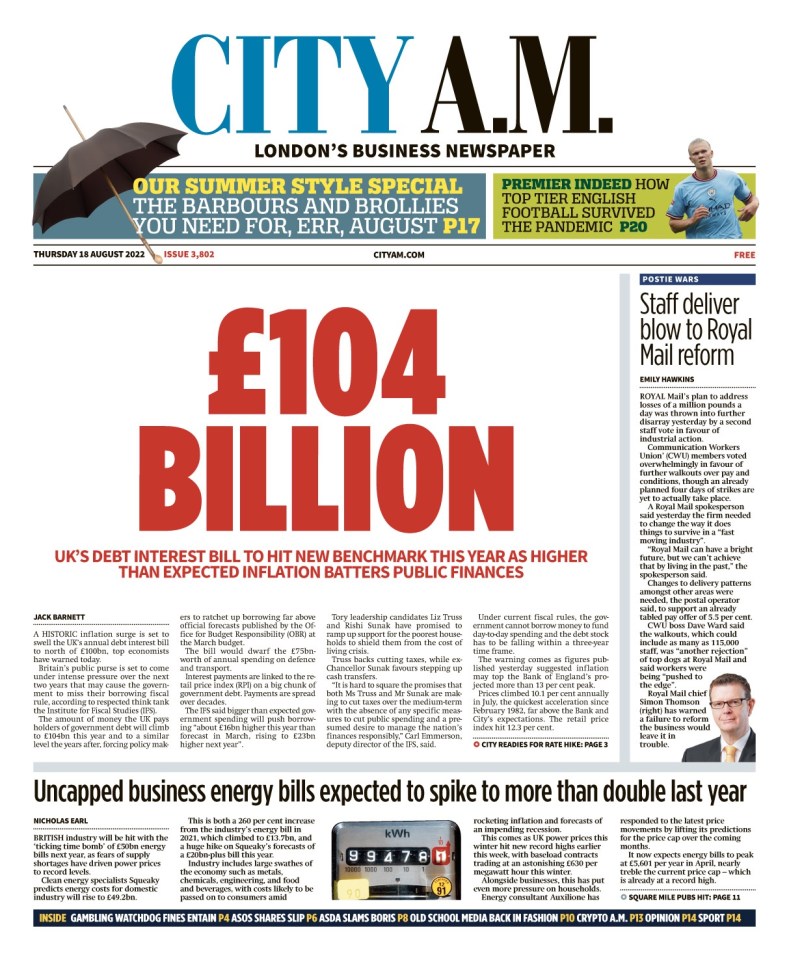Historic inflation surge to swell UK debt interest bill to over £200bn

A historic inflation surge is set to swell the UK’s debt interest bill to over £200bn, top economists have warned today.
Britain’s public purse is set to come under intense pressure over the next two years that may cause the government to miss their borrowing fiscal rule, according to the Institute for Fiscal Studies (IFS).
The amount of money the UK pays holders of government debt will climb to over £100bn this year and next, forcing policy makers to ratchet up borrowing far above official forecasts published by the Office for Budget Responsibility (OBR) at the March budget.
Interest payments are linked to the retail price index (RPI) for around a quarter of government debt. They are spread over decades.
The IFS said bigger than expected government spending will push borrowing “about £16bn higher this year than forecast in March, rising to £23bn higher next year”.

The UK’s debt interest bill is forecast to top the around £75bn of spending on defence and transport. In the financial year before Covid-19, the country’s debt interest bill was around £48bn.
Tory leadership candidates Liz Truss and Rishi Sunak have promised to ramp up support for the poorest households to shield them from the cost of living crisis.
Truss has backed cutting taxes, while Sunak has pledged to step up cash transfers.
Any further support – either through reducing taxes or additional spending – that is unfunded “would only act to make this problem worse,” the IFS said.
“It is hard to square the promises that both Ms Truss and Mr Sunak are making to cut taxes over the medium-term with the absence of any specific measures to cut public spending and a presumed desire to manage the nation’s finances responsibly,” Carl Emmerson, deputy director of the IFS, said.
The warning comes as figures published yesterday suggested inflation may top the Bank of England’s projected more than 13 per cent peak.
Prices climbed 10.1 per cent annually in July, the quickest acceleration since February 1982, far above the Bank and City’s expectations. RPI hit 12.3 per cent.
A Truss campaign source told City A.M. we “need to challenge the failing economic orthodoxy” by reducing taxes to boost growth.
“This drives a coach and horses through Liz’s economic plan,” a Sunak spokesperson said, adding “unfunded tax cuts would cause significant damage to the public finances and push inflation up higher.”
Ratings agency Fitch warned: “A challenging mix of high inflation and slowing economic growth in the UK will constrain policy options for the next prime minister.”